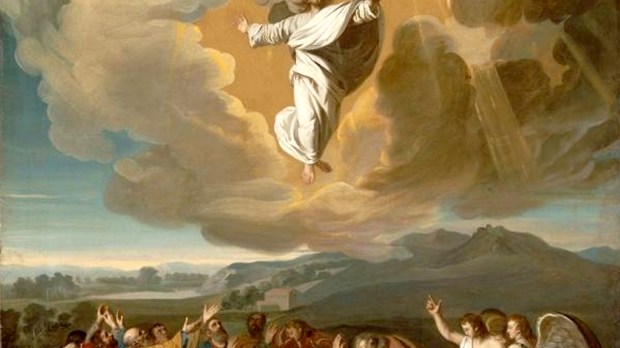“That the dead will rise even Moses made known in the passage about the bush, when he called out ‘Lord,’ the God of Abraham, the God of Isaac, and the God of Jacob; and he is not the God of the dead, but of the living, for to him all are alive.”
—Luke 20:37-38
There is a fascination in our culture with what happens when we die. Books and films like Heaven Is For Real and 90 Minutes in Heaven captured the attention of millions of Americans looking for some sense of hope and meaning for their lives. For us, as 21st-century Christians, belief in life after death is something that seems to be an obvious and vital part of our faith, despite the fact that it is an experience that is beyond our understanding or imagining.
And yet, in the time of Jesus, belief in a resurrected life was still a relatively new concept. As Sister Barbara Reid, O.P., observes in Abiding Word, “Ideas varied about what it would be like. In the first reading today (2 Maccabees 7:1-2, 9-14), we see the belief expressed that only the just would be raised, not the wicked. In other texts, we find the notion that both would be raised, the former to eternal reward, the latter for everlasting punishment (cf. Matthew 25:46).” Jesus’ audience would have also included those who did not believe in the concept of a life beyond death, especially the theologically conservative Sadducees. It is this group of the religious elite who challenge Jesus in this Sunday’s Gospel passage.
Saint Luke sets the scene by having a group of Sadducees try to trick Jesus into getting involved in their own philosophical debates about resurrection and the existence of angels. They ask Jesus a ridiculous and convoluted question, trying to show that resurrected life is impossible and even at odds with their own religious tradition and the Law of Moses. Ultimately, their question is about men—seven brothers—possessing a woman in the afterlife. Although this scenario seems ridiculous to us today, it is based on marriage laws found in the Book of Deuteronomy (25:5-6), in which Moses says that a widow’s brother-in-law marries her to ensure that lands stay in the first husband’s family and that his name is carried on.
In response, Jesus unravels their question and misperceptions by declaring that there would be no need for marital arrangements in the afterlife. In the resurrection, each person lives as God’s child, free of the fear and prospect of death. As Reid notes, “Jesus shows the Sadducees that Moses himself can be read as affirming that life continues beyond the grave. We can hear, as well, in Jesus’ response, God’s desire for an end to any abuse of women. As beloved daughters of God, they are no longer passed from man to man.”
The resurrected life proclaimed by Jesus goes beyond the limits of human existence. The expectations and customs of this life do not apply. As Pope Francis has reflected, “It is not this life that will serve as a reference point for eternity, for the other life that awaits us; rather, it is eternity—that life—which illumines and gives hope to the earthly life of each one of us!” (Angelus, November 10, 2013).
As we enter into the final weeks of the Church Year, our attention is being drawn to the Second Coming of Christ and the themes of the “Last Things”: death, judgment, Heaven, and hell. And this Sunday’s Gospel is an invitation for us to reflect on the promise of resurrection life offered us by Jesus: our perfect union with God and the fullness of life forever.
In the end, our belief in the resurrection of the dead and the promise of life beyond death leads us to an encounter with the God who is the God “of the living.” Eternal life isn’t a mystery to be puzzled out or something that can be captured in books or in films. Rather, it is a promise and a gift that is based on our hope and confidence that God is at work in us even now and that we can experience this resurrection life even today as we celebrate the joy, mercy, and peace that comes through our faithful relationship with God. We can be confident that what we experience here in grace will reach is fulfillment in the life to come.
How does your belief in the resurrection of the dead shape your life today?
What does it mean for you to call God the “God of the living?”
As we approach the end of the Church Year and the Solemnity of Christ the King, reflect on what strengthens your life of faith and empowers you to persevere in your commitment to follow Jesus.
Words of Wisdom: “We are on a journey, on a pilgrimage toward the fullness of life, and that fullness of life is what illumines our journey! Therefore death stands behind us, not before us. Before us is the God of the living, the God of the covenant, the God who bears my name, our names stand before us as he said: ‘I am the God of Abraham, of Isaac, of Jacob,’ and also the God with my name, with you name… with our names. The God of the living!”—Pope Francis

